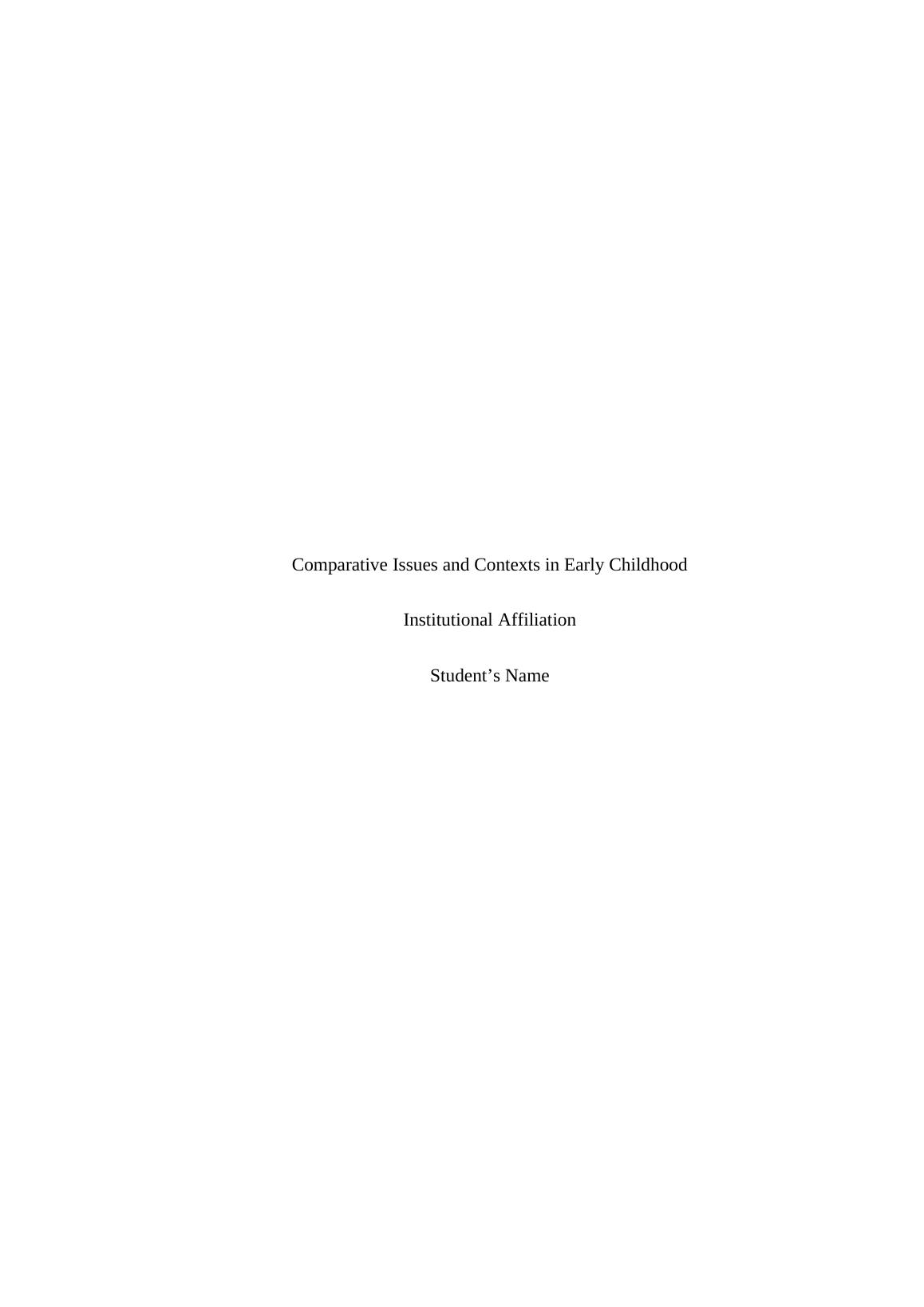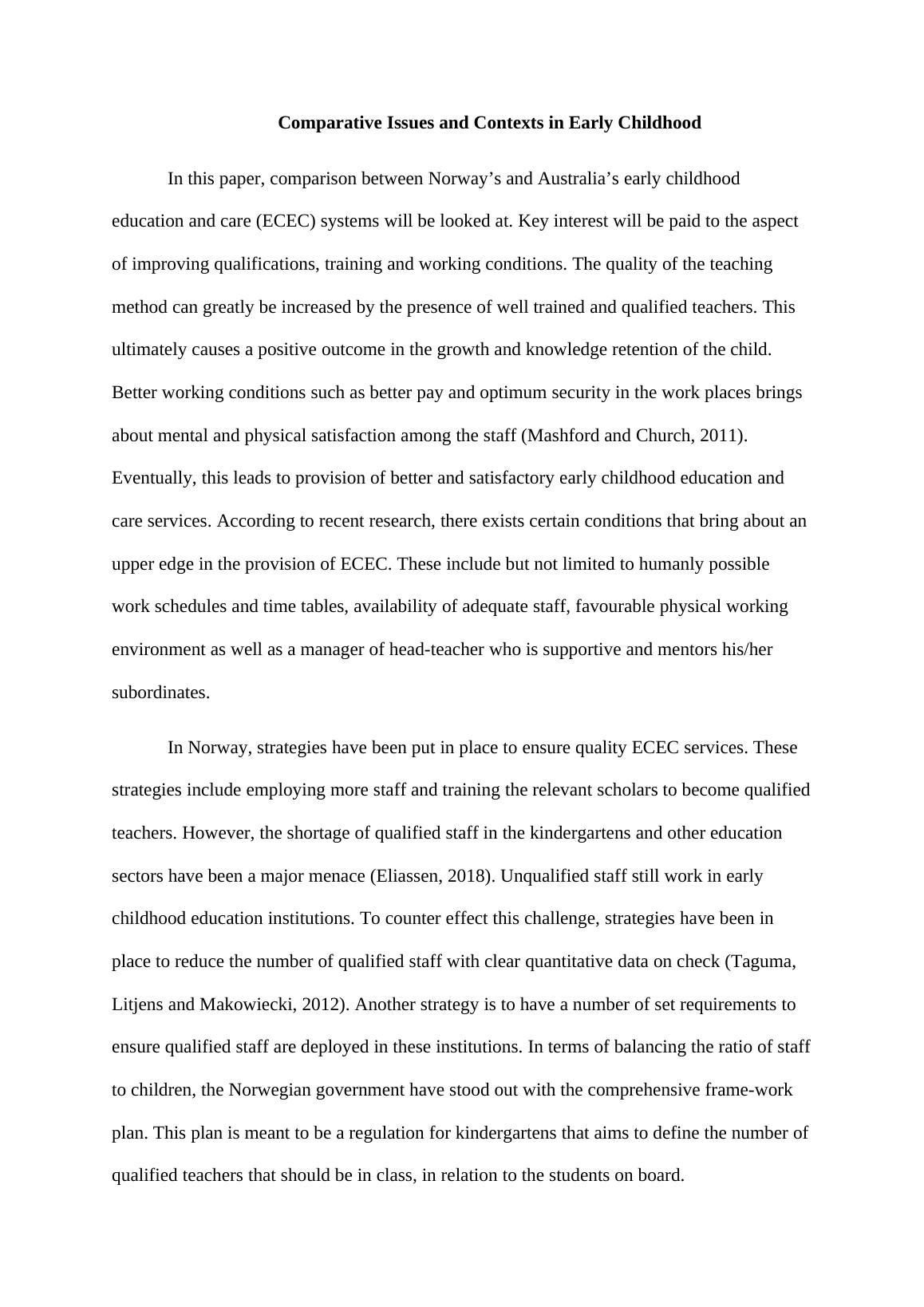Comparative Issues and Contexts in Early Childhood
The assignment is about international perspectives on early childhood education and care, with a focus on policy and provision for young children and their families in different countries around the world. It also explores the history and development of early childhood education in various countries, and its importance in improving quality of life and world harmony. The assignment is part of a lecture on comparative education and frameworks.
Added on 2022-10-10
About This Document
Comparative Issues and Contexts in Early Childhood
The assignment is about international perspectives on early childhood education and care, with a focus on policy and provision for young children and their families in different countries around the world. It also explores the history and development of early childhood education in various countries, and its importance in improving quality of life and world harmony. The assignment is part of a lecture on comparative education and frameworks.
Added on 2022-10-10
End of preview
Want to access all the pages? Upload your documents or become a member.


